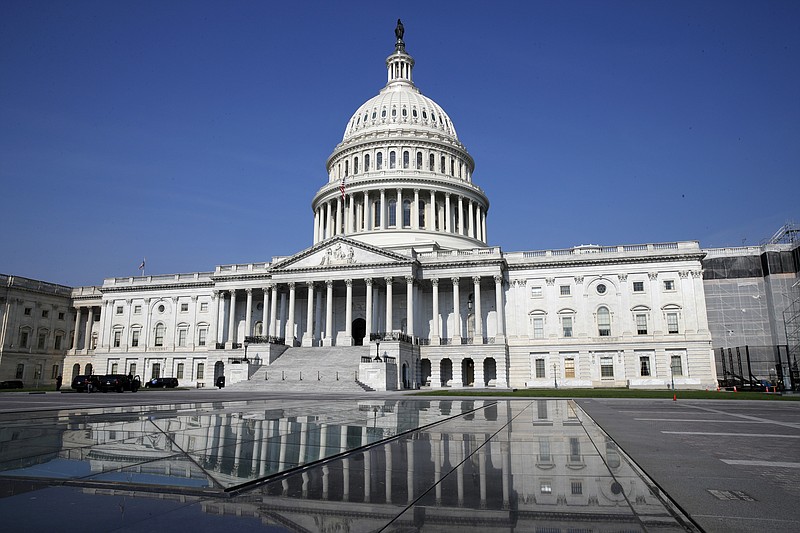Like Jerry Reed's truck driver character Cledus in the 1977 movie "Smokey and the Bandit," Congress has "got a long way to go and a short time to get there."
On members' to-do lists once they return from their summer breaks on Sept. 4, to name just a few of the major items President Donald Trump has in mind for his first year in office, are health care reform, tax reform and a major infrastructure bill. However, the working days between Labor Day and the end of the year are relatively few and the issues many and complex.
What does failure to get any of the above done look like?
For Congress as a whole, it couldn't get much worse than it already is. In the latest job approval poll by Economist/YouGov, 11 percent of people approved of it and 67 percent disapproved. And that was up two percentage points from the previous week.
The public, before Trump and since Trump, practically has come to believe its congressional body is impotent. So we can't imagine that failing to pass major legislation would make much difference in its overall performance rating.
As for Republicans, their national brand will suffer from a lack of legislative success, but the national standing of the GOP has never been a bellwether of how the party will fare in individual elections. In the most recent CNN 2018 generic congressional poll, for instance, Democrats have a 51-42 lead, but Republicans over the last several months have won five special elections into which Democrats poured time and tons of money. And, unless the country collapses in the next year, Republicans not only will retain the House but also could even slightly increase their Senate numbers.
The relative popularity of Trump will determine whether individual Republican members of Congress run with him or on their own next year, U.S. Rep. Chuck Fleischmann, R-Chattanooga, told Times Free Press reporters and editors Tuesday.
"President Trump's support in this state is overwhelming," he said. Should something unexpected happen to cause that to change, he said, "I can stand on my record."
For Fleischmann, that includes strong support for the Chickamauga Dam lock replacement, Oak Ridge National Laboratory, nuclear cleanup and workforce development.
He is also in a district, as he acknowledges, that currently is unlikely to elect a Democrat.
Nevertheless, Fleischmann believes there is opportunity for accomplishment.
On health care, he said the potential collapse of the Affordable Care Act (ACA) will "put pressure on us to fix this."
"I think this will happen," Fleischmann said. "The status quo is imploding. It's hurting the American people."
We wish we shared his optimism. Although he said "the House did what it had to do" by passing repeal and replacement of the ACA, the Senate didn't. We have appealed for a bipartisan new health care law, but both parties appear stuck in second gear. Our guess is that, unless the ACA completely collapses - something he hoped wouldn't be remedied with a "crisis fix" - the can will be kicked into 2018.
Unfortunately, "the longer something bad hangs around, the harder it is to repeal it," the four-term congressman said.
An infrastructure bill, Fleischmann said, will require 60 votes in the Senate. Although that's a heavy lift, there is bipartisan interest in such legislation.
"The key problem," he said, "is how to pay for it."
Because of that very problem, we also see this being shoved into next year.
Fleischmann feels Congress has a better shot with tax reform, particularly corporate tax reform. He said he has talked to moderate Democrats who are willing to support it. Individual tax cuts would be more difficult to pass, he said. And much of the tax question depends on health care because of the taxes currently wrapped in it.
If Trump gets one of the three initiatives done by the end of the year, he should feel fortunate. Our feeling is he should have started with infrastructure, where there is at least some true bipartisan agreement. Health care, then, should have been a multi-year fix, with tax reform coming behind it.
Fortunately, the president can point positively to a solid economy, rolled back regulations and reduced border crossings. Little of that redounds upon Congress, though. While a lack of progress on the big issues is not likely to hurt well-placed members like Fleischmann in 2018, it will begin to take its toll in swing districts. And with a few losses in 2018 and a few more in 2020, the Republican majority soon could be squandered.
We hope that's a topic of conversation members already are beginning to have.
